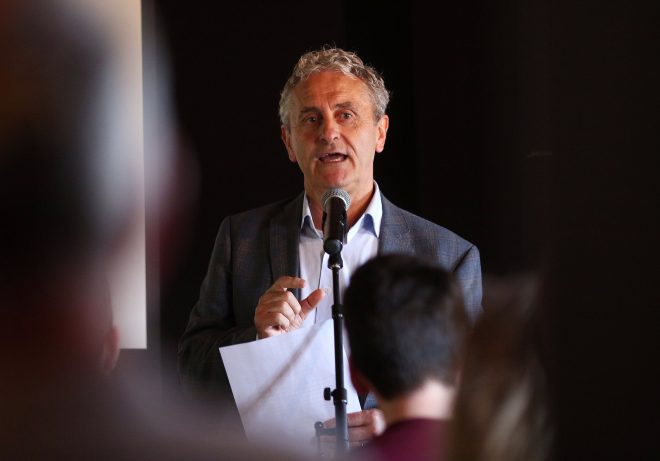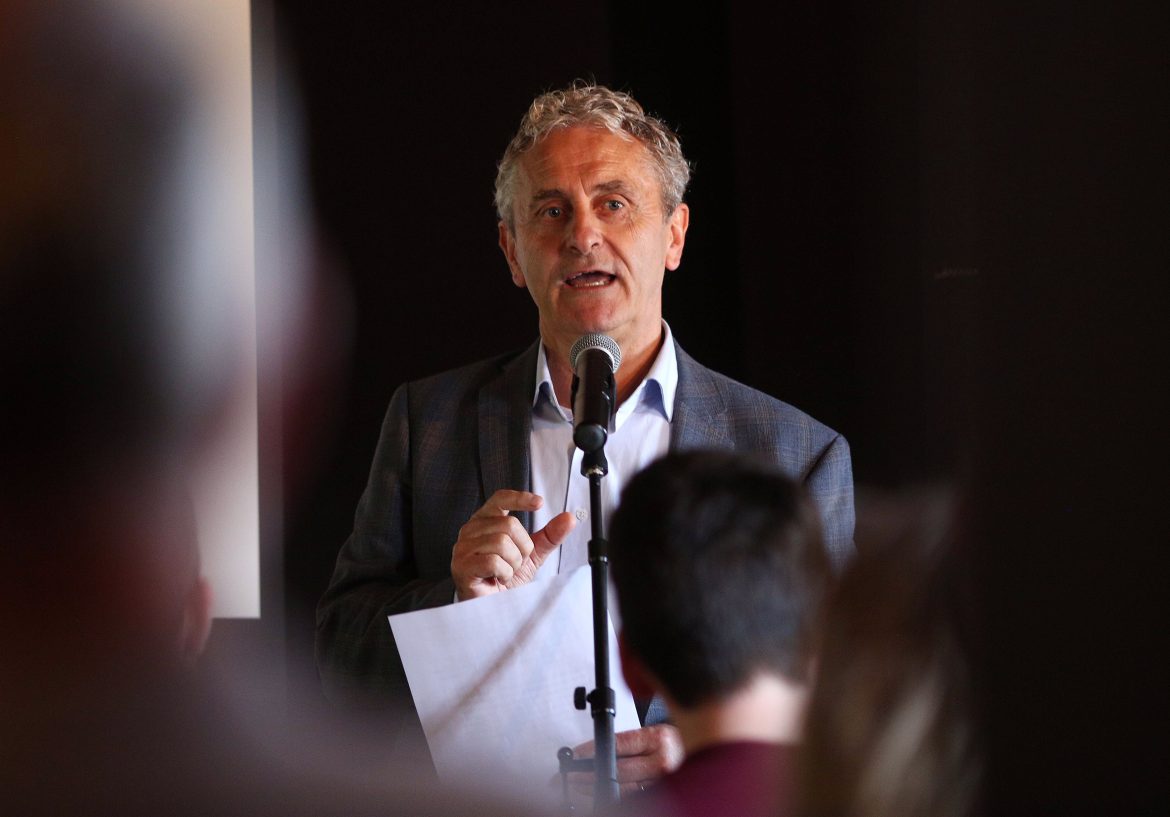
Paddy Harte, chairman of the International Fund for Ireland
The call to increase peace building efforts between North and South comes as the IFI launch their new four-year strategy which focuses on how it will continue to support communities across Northern Ireland and the southern border counties from 2021-2024.
‘Connecting Communities’ will deliver four core programmes that aim to empower marginalised communities and help them move towards a shared future.
It has been apparent for some time that ongoing uncertainty surrounding the NI Protocol has led to challenges for many communities and, as a result, cross border relations have suffered.
The IFI’s new ‘Communities in Partnership’ programme, alongside three existing programmes, will specifically help embed lasting relationships on a cross-border basis and provide meaningful benefit for those involved.
Paramilitary organisations are gaining support from vulnerable communities who feel they have been let down by the Peace Process to date.
This is exacerbated by political instability as well as post-Brexit measures such as the NI Protocol, the Irish Sea border and calls for a Border Poll which continue to gain momentum.
Add to this the ongoing effects of intergenerational trauma felt across communities as a result of the Troubles and we can see that all these factors reinforce the need to strengthen the relationships and break the cycle of mistrust and violence.
This approach will play a key role in empowering the next generation who live in these communities to work towards a shared society.
The IFI have a long history of encouraging cross-border partnerships and are committed to encouraging contact and dialogue across the island.
IFI chairman Paddy Harte said: “The IFI has been working for 35 years to develop innovative programmes that aim to create a truly reconciled and shared society.
“Peace building is slow in any context, but we are now at a critical juncture of this journey.
“Society and communities have changed considerably in recent years and many people simply feel left behind.
“Our projects have continued to work throughout the pandemic, and it is now becoming clear that many societal issues are emerging because of the crisis and pose even further challenges to peace and stability.
“Problems such as mental health, food poverty and economic downturn alongside existing legacy issues and trauma are significant challenges that require our urgent attention.
“In addition, there is the renewed threat of violence on the streets as we have witnessed earlier in the year.
“In order to find workable solutions, we believe that all of us who find ourselves in positions of leadership and influence must challenge each other to redouble our efforts to work together towards building the shared society that we all want to see.
“We believe it is time to break this cycle of instability and violence, so that further trauma stemming from the Troubles cannot be passed on to future generations.
“The next phase of our work will be key in removing those remaining barriers to help create sustainable peace and encourage community grassroots leadership.
“We will also engage with projects across a variety of areas including intergenerational trauma as this is an important part of dialogue and reconciliation to enable people to move forward.
“Having a renewed cross-border focus, we will continue to encourage positive community development and leadership giving each generation the tools they need to prosper and grow”.
British Secretary of State Brandon Lewis MP commented: “The International Fund for Ireland has brought thousands of people together across the divisions in society.
“It has done unparalleled work to build and sustain peace by promoting and facilitating reconciliation and by tackling the underlying causes of violence and sectarianism.
“It continues to have a vital role to play, and I welcome how this new strategy recognises the value of the current core programmes but also will help build connections and encourage innovation and resourcefulness in cross-border communities at a time of uncertainty and friction.
“The UK Government remains committed to the work of the Fund and I look forward to continuing to work with those involved in the future.”
Irish Minister for Foreign Affairs, Simon Coveney TD, added: “As the world recovers from the social and economic effects of the Covid pandemic, and as Northern Ireland and the border counties continue to deal with the legacy of the past and the impact of Brexit, the work of the Fund, through its engagement with the young and the most marginalised, is greatly needed in the period that lies ahead.
“As it has always done, in this new Strategy, the Fund understands and is responding to the needs of the communities it has supported on the path to peace and reconciliation over the past thirty five years.”
The Peace Impact Programme was launched in 2012 and over £22.7m/€26.8m has been allocated to projects to date.
It works with communities, who have not previously or only partially taken part in peace building activity.
Typically, many of these communities suffer from high levels of economic or social deprivation.
A large element of this programme also engages with young people who are vulnerable to recruitment or attack by paramilitary / criminal groups.
The Peace Barriers Programme (formerly Peace Walls Programme) helps interface communities reach a point where they feel comfortable to talk about the removal of Peace Walls or barriers in their area. Since 2012, the IFI has invested more than £7.5m/€8.8m in its work to enable groups to deliver interventions.
The Personal Youth Development Programme was launched in 2016 and £12.9m/€15.2 and has been invested to date.
It works with at risk young people who come from complex backgrounds including homelessness, drug/ alcohol addiction and mental health issues.
It helps develop skills and confidence through a tailored approach, ultimately making participants more employable and able to give back to their communities.
The IFI was set up by the British and Irish governments as an independent organisation in 1986. It delivers a range of peace and reconciliation initiatives across Northern Ireland and the southern border counties.
The strategy is available to download from: www.internationalfundforireland.com
Tags:





